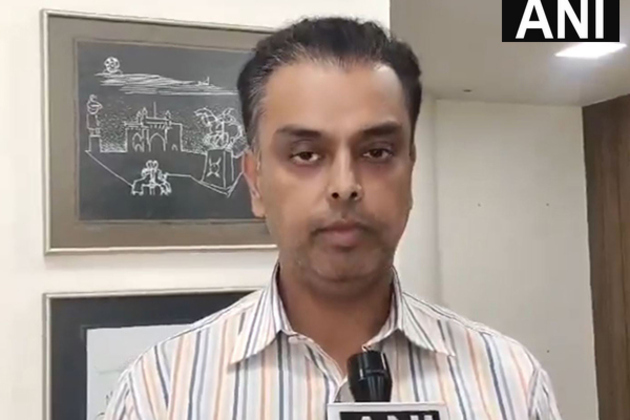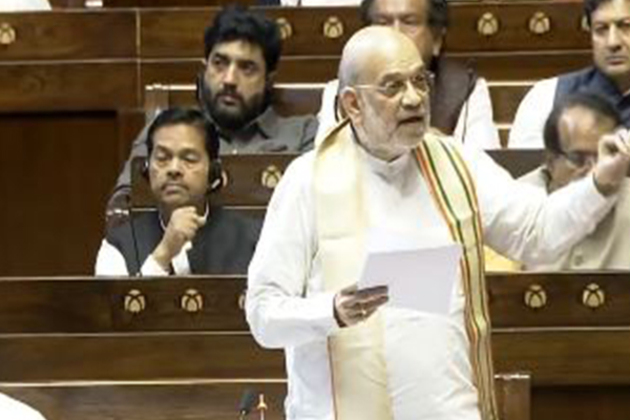Community and school gardens don't magically sprout bountiful benefits
The Conversation
05 Aug 2022, 02:09 GMT+10

While it is widely understood that community and and school gardening have innumerable health, well-being and educational benefits, it's important to realize these benefits don't magically appear when gardens take root.
Over the past six years, I've worked closely with educators, community workers, activists and community members in Tio'tia:ke/Montreal as we created, funded and sustained gardens and garden teams at schools and community organizations.
We set up adult education internships to provide practical gardening and teaching support to explore the extent to which gardens act as forums where people address social and environmental justice. Some participants experienced barriers to employment, food insecurity and homelessness.
This research and community work demonstrated how critical it is to advocate for broader social, urban and educational structural changes to support community garden work - and to understand the importance of having realistic expectations about what people can accomplish in and through gardens.
Who do benefits reach?
In Tio'tia:ke/Montreal, community gardening unfolds in many different ways that might include gardening efforts at community-based organizations and city-run gardens.
There are significant wait lists to access a garden plot in the city, exacerbated by community gardens being historically reserved for property-owning individuals.
According to the mayor of Montreal, "for many people, community gardens are more than just a hobby. They allow them to feed their families and to obtain fresh produce at a low cost."
Such statements obscure more complex issues around who controls and accesses community gardens and deeper entrenched social inequities relating to land rights in a capitalist settler-colonial society that privileges ownership, whiteness and hierarchical modes of relating.
Relationship to food insecurity
My findings contest claims that suggest community gardening is inherently an activity that reduces under-served communities' food insecurity.
Reflecting on my efforts to grow food for organizations that work with people experiencing food insecurity, as part of a project called "Gardening for Food Security," I cannot claim gardening helped to alleviate the concerns of people experiencing food insecurity in any quantifiable way.
This is despite producing an immense amount of food harvested on a weekly/bi-weekly basis from late June to early November in 2018 and 2019.
Although the gardens were thriving, the organization never reduced their food order to Montreal's largest food bank. This may be because while participants ate from the garden harvest, their reliance upon it did not reduce their need for other food. The Gardening for Food Security project did, however, modestly support a food bank and a once-a-week meal service.
Mixed effects for communities, individuals
As we gardened and invested in gardens for different social, educational and environmental reasons in rapidly gentrifying neighbourhoods, we contributed to increasing land values in a process described as green gentrification.
Despite these critical observations, some benefits of the project included:
offering relevant paid employment for young adults experiencing barriers to employment, food insecurity and homelessness;
providing mentorship and opportunities for under-served young adults and students to express themselves (through art, photography, music, film, gardening);
facilitating partnerships between schools and organizations with mandates of social and environmental justice for mutual benefit;
acquiring prolonged financial, learning and human resource support to educators, learners, community workers and community members, while developing ethical relationships and collaborating to accomplish shared objectives.
The latter three types of benefits are difficult to quantify to funders.
Problems with schools gardens
Gardening as part of environmental education is not mandatory core curriculum in Quebec. School gardening often occurs outside of formal class time, during lunch hour or after school. Taken together, organizing gardening experiences for students within most public schools adds additional labour to already overworked and under-supported educators.
For gardening to be relevant and add educational value for both teachers and learners, gardens need to be incorporated into each core curricular area (French, English, Math and so on) and not only used before or after school hours and during lunchtime.
Read more: School-community gardens plant the seeds of change to address global warming
Many of my teacher collaborators stated that they are fully committed and interested in creating garden-based learning experiences for their students. But securing permissions translates to administrative labour. This can detract from arranging other important aspects of garden creation like establishing funding, building relationships with collaborators or drawing curricular connections and so on.
Small community change
Tio'tia:ke/Montreal, like many Canadian cities, has a long winter and a short intense summer. For school gardens to work, the planning and administrative labour and permissions for a spring garden need to happen early in the school year to account for inevitable delays.
If educators or outside parties wish to support school gardens with funding and labour, I strongly recommend that students lead the creation, development and importantly the evaluation of the garden as a project.
When gardens are prematurely celebrated for producing anticipated outcomes such as health and well-being and food security, without a larger acknowledgement of how these complex issues are affected by systemic barriers, much can be lost.
This includes the well-being of teachers who invest immense labour in something they believe in with limited institutional support, and affordable spaces for people to live who get dispossessed of their homes, communities and networks through green gentrification.
No easy solutions
There are no easy solutions to the social and environmental problems of school, community gardening or greening.
Often, teachers and community members want and need a garden, but they are more in need of: financial support, teaching support, human resource support, more time, fewer students, curricular freedom, relevant professional development and land that isn't part of a bigger capitalist system of private ownership or tied up in red tape.
Even small community change takes time and needs ongoing collective effort.
Author: Mitchell McLarnon - Assistant Professor, Adult Education, Concordia University 
 Share
Share
 Tweet
Tweet
 Share
Share
 Flip
Flip
 Email
Email
Watch latest videos
Subscribe and Follow
Get a daily dose of Mexico Star news through our daily email, its complimentary and keeps you fully up to date with world and business news as well.
News RELEASES
Publish news of your business, community or sports group, personnel appointments, major event and more by submitting a news release to Mexico Star.
More InformationLifestyle
SectionDublin thrives in colorful St. Patrick’s Day celebrations
DUBLIN, Ireland: Dublin came alive with energy and color as thousands lined the streets to celebrate St. Patrick's Day, soaking in...
Shiv Sena MP Milind Deora praises PM Modi's campaign on obesity, suggests higher taxes on sugary products
Mumbai (Maharashtra) [India], March 22 (ANI): Shiv Sena MP Milind Deora on Friday praised Prime Minister Narendra Modi's national-level...
Yuvraj Singh's wife Hazel Keech supports BCCI's family time rule, says it helps players stay focused
New Delhi [India] March 22 (ANI): Former Indian cricketer Yuvraj Singh's wife, Hazel Keech, has shared her views on the Board of Control...
"12 important peace accords signed...10,900 youths gave up arms": Amit Shah highlights Northeast peace efforts in Rajya Sabha
New Delhi, [India], March 22 (ANI): Union Home Minister Amit Shah on Friday announced a significant milestone in the government's efforts...
Maharashtra Labour Department orders probe into Pune bus fire tragedy
Pune (Maharashtra) [India], March 21 (ANI): The Maharashtra Government's Labour Department has initiated an inquiry into a tragic bus...
Subhash Ghai, Simi Garewal, Tina Ambani, Neetu Kapoor celebrate 45 years of 'Karz'
Mumbai (Maharashtra) [India], March 21 (ANI): Nostalgia alert! Subhash Ghai's directorial 'Karz' was showcased at the Red Lorry Film...
International
SectionUS seeks global support to block China’s access to American chips
WASHINGTON, D.C.: Commerce Secretary Howard Lutnick said the Trump administration is asking companies and foreign governments to help...
Many dead after Israeli air strike on Gazan funeral
Israel Air Force pilots have bombed a funeral in northern Gaza, killing more than a dozen mourners. Family and friends of Dr Wasim...
Delta Jet's wing strikes runway during rough landing at LaGuardia
NEW YORK CITY, New York: A Delta Air Lines plane's wing hit the runway at LaGuardia Airport during a rough landing over the weekend....
Amid measles outbreak, cases in Texas, New Mexico climb to 317
AUSTIN/SANTA FE: Measles cases in Texas and New Mexico increased to 317 on March 18, up from 294 four days earlier, as the U.S. faces...
US weighs broad travel ban covering dozens of countries
WASHINGTON, D.C.: The Trump administration is considering strict new travel restrictions for citizens of dozens of countries, according...
US: Maine violated federal law by allowing transgender girls in sports
WASHINGTON, D.C.: The Trump administration announced this week that Maine's education officials violated federal law by allowing transgender...













